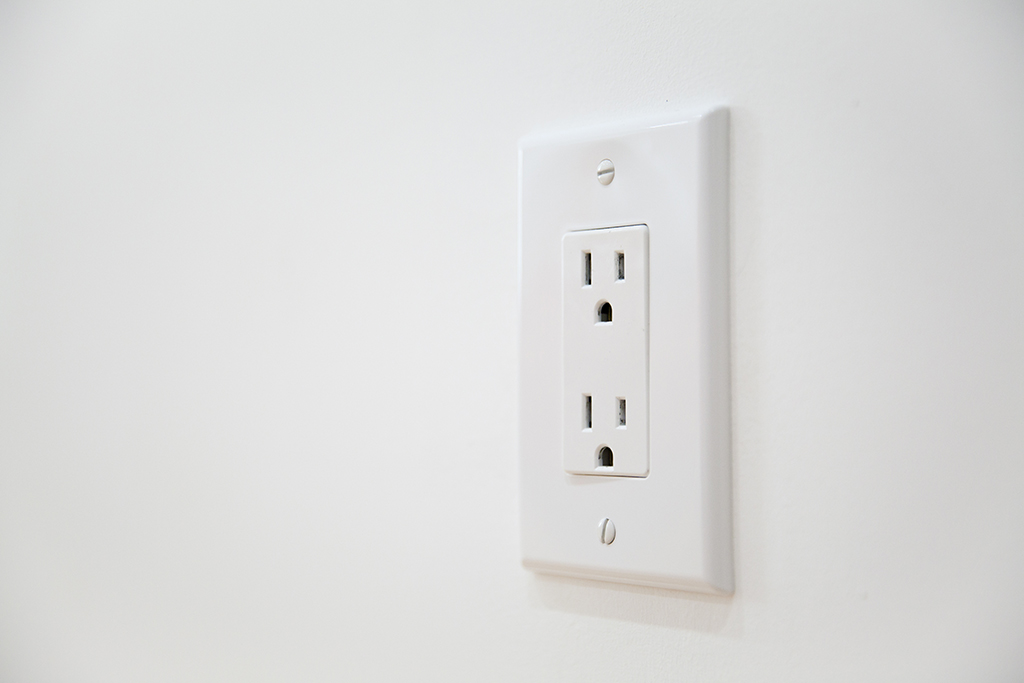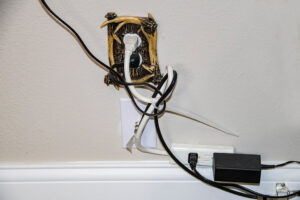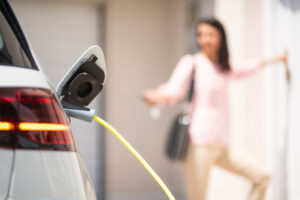
Common Outlet Receptacle Issues And Ways By Which An Electrical Services Provider Can Help
Electrical receptacles are your home’s workhorses of your home’s electrical workhorse. It is in the receptacles where electronic equipment, small appliances, space heaters, lamps, and many other devices and appliances tap into your home’s electrical circuits to run. With time, the outlet receptacles can see the plugs withdrawn and inserted thousands of times. Like all other mechanical or electrical devices or components, outlet receptacles will also wear out or be damaged. However, these aren’t the only reasons you might have to change the outlet receptacles. The changes in the electrical code requirements might also mean that you hire an electrical services provider to change existing receptacles to new ones for compliance. Below are the common outlet receptacle issues and what you can do about them.
Worn-Out Slots
Though receptacles don’t have moving parts, they have metallic contact points within the body of that device. They are designed to firmly grip the cord plugs’ grounding, hot, and neutral prongs. With time the contacts start wearing out and losing their gripping power. As these exposed contacts lose the ability to grip the plug, greater electrical resistance and heat arise. This can cause problems in your electrical wiring and might make the breakers trip.
Additionally, you might begin hearing audible crackling sounds from the outlet receptacles because of sparking. Further, the appliance plugs will lose inside receptacle slots. If you notice such, you should have an electrician replace the receptacles with new ones. In most instances, replacing the outlet receptacles might require you to install up-to-code new ones, particularly if the arc fault and GFCI requirements are involved.
Loose Wire Connections
Another common issue with outlet receptacles that have been in use for a long time is that the circuit wiring connections begin loosening. Whenever current is drawn through the wire connection, some heat is generated. The heat causes a repeated contraction and expansion of the wires, eventually making the screws loosen. You may even start hearing the receptacle crackle whenever this happens. Ultimately, the wiring connections become loose, shorting the circuit and causing the breaker to trip.
Loose wiring connections are particularly common if outlet receptacles are wired using push-in fittings at the back of the receptacle. Such connections are highly insecure. Hence, electrical services providers sometimes use such fittings for making wiring connections. Routine electrical maintenance could uncover if you have these fittings. If the wiring is loose, the electrician will note that during the inspection and tighten them.
If there is back wiring, the electrician will strip and clip the wires before wrapping them around the right screw terminals. They will then securely tighten them. Further, ensure the receptacle’s mounting strap is tightly secured so the device can’t wiggle around whenever you insert or remove the plugs.
Cracked Body
Damaged outlet receptacles are dangerous. While modern receptacles use rigid vinyl bodies that rarely break or crack, older receptacles are made from bakelite, a rather brittle plastic susceptible to cracking. Sometimes, the chips or cracks are visible on the front face of the outlet receptacle, particularly around the slots. However, it’s also possible that the back or side of the outlet receptacle may also crack. Should you notice the receptacle is cracked, the solution is simple— enlist an electrician to replace it.
Improper Rating
Do you know that outlet receptacles are usually rated for specific amperage? If you don’t, you aren’t alone. Many other homeowners don’t know this fact. Standard home circuits feature receptacles rated 15 or 20 amps. You can identify a 20-amp rated receptacle by the small horizontal “T,” which juts out from one of the vertical slots of the component. These outlet receptacles accept specific 20-amp plugs found on heavy-demand appliances like space heaters.
Using receptacles with wrong circuit amperage or wiring rating is rather common, albeit wrong. Although there’s no danger when a 15-amp receptacle is connected to a 20-amp circuitry, the reverse has notable hazards. Plugging a 20-amp appliance into a circuit that only allows 15 amps of power will see your breakers trip at best. It could damage the wiring or even start an electrical fire.
Poor Quality
Cheap outlet receptacles work fine for a period. However, it eventually will start experiencing problems. Overseas mass-produced devices can sometimes be suspect unless they have an approved listing from a certified testing agency like the Underwriters Laboratories (UL). Before purchasing a receptacle, ensure that it has stamped approval rating from a reputable testing agency. You also can consult your electrical services provider when purchasing replacement electrical components.
Reversed Polarity
Outlet receptacles are usually designed with neutral and hot wire connections. This ensures that polarized plugs on most small appliances and lamps can route the neutral and hot current in the right direction via the device. Should those wires be fitted in reverse, the appliance still will work but will pose a higher risk of shock or fire should short-circuiting arise. Reversed neutral and hot wire connections are called “reversed polarity.” This situation goes unnoticed until electrical issues start manifesting. Join an electrical maintenance plan where an electrician can test your receptacles when they come for a maintenance visit.
No Ground Connection
The other prevalent issue with receptacles is the absence of ground connections. This arises because the receptacles aren’t connected to the grounding wire, or the system isn’t grounded. This arises in old wiring systems that don’t have grounding protection. An electrical services technician may identify a lack of grounding when they visit your home for maintenance. Grounding your electrical outlets prevents ground faults. Hence, if you’re unsure the outlets are grounded, have an electrician inspect the ground connections of the receptacle to see whether corrections are required.
We Can Help!
Many electrical issues might befall your outlet receptacles. Do you need help to inspect or replace them? Contact us at Mister Sparky of Myrtle Beach to book an appointment.
See our most recent blog on this topic here.
Find out our service area here.
Photo By JaysonPhotography at Shutterstock
 Causes Of Buzzing Sounds In Electrical Outlets And How Experienced Electricians Can Help
Causes Of Buzzing Sounds In Electrical Outlets And How Experienced Electricians Can Help
Before electrical problems arise, there are intermittent signs that show. If you are a keen and proactive homeowner, you can deduce what these signs mean or immediately have an electrician come over for a further inspection. Whenever you hear a distant buzzing noise at your home, you can easily chalk it up to the sounds coming from the electronic devices or fan left on. However, this is not the right approach. You should look closely at your electrical system whenever you hear any sounds, not only buzzing ones. A closer inspection of the buzzing sound might reveal a rather surprising fact that it is coming from the electrical outlet. While a buzzing outlet might appear to be a minor problem, it could indicate a bigger underlying problem.
What Does It Mean When an Electrical Outlet Produces a Buzzing Sound?
Does your electrical outlet(s) produce a buzzing sound? That isn’t something you should take lightly. The electricity at your home results from alternating currents that change polarity almost 50-60 times every second. In most instances, these polarity changeovers don’t produce noise. However, if there is an interruption in the current, you might hear a buzzing or humming sound— also called electrical hum noise.
Causes of Buzzing Sounds in an Electrical Outlet
Overloads in the Circuit Breaker
The primary breaker at your home regulates power to every switch within the circuit breaker panel. When there generally is a wiring or breaker issue, you might hear the buzzing or humming in the electrical outlets. The electrical wiring could be corroded and requires a replacement or upgrade because of water infiltration.
Should you hear the scratchy humming or buzzing sounds, that could be a sign that the breaker is overloaded, a particularly dangerous issue. If the noises coming from the circuit breaker are louder than those quiet hums, there most likely is a brewing issue. If the breaker box produces a louder buzzing sound than normal, then you should have it checked by an electrician.
Loose Connections
The other common reason for the buzzing or humming sounds from the electrical outlets is loose wiring within the circuit. Thus, you must have regular inspections or create an electrical maintenance plan with your reliable technician. The wires might become loose within your electrical outlet, vibrating and generating a buzzing sound.
This is a widespread problem among older houses having out-of-date outlets. Is your home over 30 years old? Then you should have a professional inspect the electrical system to ensure it’s up-to-date. You should have the technician rewire it and replace different electrical system components if they aren’t. If this is not an option you can afford, then replace the frequently used components.
It could be that the technician did not wire your electrical outlets properly, especially if you hired a handyman. You should do extensive research before hiring an electrical services provider to ensure you get the best. While important, electricity is also highly dangerous. The last thing you want is to hire professionals with little or no regard for electrical safety or those that don’t understand NEC electrical codes.
Mains Hum
The buzzing or humming sounds don’t always indicate that something is out of order. Sometimes, you might hear the mains humming around your home’s electrical and electronic appliances, such as motor-driven items or refrigerators. For instance, a buildup of stray magnetic fields may cause buzzing in a transformer outside your home.
Polarity Issues
As explained above, shoddy workmanship sometimes is the reason for the buzzing electrical outlets. Mistakes can arise when an electrician fails to adhere to standard installation protocols or does the installation and wiring in a rush. If you notice that your outlets produce a louder buzzing sound whenever you plug in several devices or appliances, you could be experiencing a phenomenon called reverse polarity. This issue arises when the neutral and hot wires are reversed or flipped inside the outlet. It is a common issue, especially if you try a DIY approach to electrical repairs or installation or hire an inexperienced electrical services provider. Do you suspect that you are dealing with polarity problems? Then you should enlist an experienced electrical services provider to fix it.
Electrical Panel Trouble
The faulty wiring connections in your circuit breakers might be causing issues in the electrical panel. Do you hear a buzzing sound when passing near the electrical panel? If you do, you should immediately contact an electrical services provider and have them come over for an inspection. If your electrical panels are over 10 years old, then it might be about time you replace them. Further, ensure you replace any malfunctioning electrical fuses regularly.
Should You Fear Buzzing Outlets?
Yes. No matter the underlying problem, buzzing outlets are always due to an issue in the electrical system. If the electrical outlets at your home aren’t properly working, then you, your family, your appliances, and your home are at risk of an electrical fire, electrocutions, or shocks. Hence, never ignore your buzzing outlets. Rather, enlist an electrician for a closer look, a diagnosis of the underlying problems, and immediate repairs.
Electrical Repairs Aren’t DIY Jobs
Are you dealing with some electrical problems with your electrical outlets? Never try fixing the issue by yourself. But why so? First, electricity isn’t the best of friends and can be dangerous within a split second. DIY electrical repair jobs might result in even larger issues and other potential hazards. Rather, enlist the help of seasoned electrical services providers to address the issue. The professionals will address your electrical system issues without hiccups with their experience, training, and quality repair tools. They understand the importance of electrical safety and will leave when the underlying problem has been diagnosed and fixed completely.
Don’t DIY
Are your outlets buzzing? Don’t try repairing them yourself. Contact us at Mister Sparky of Myrtle Beach for a professional inspection, diagnosis, and repair.
See our most recent blog on this topic here.
Photo By Flat art at Shutterstock
How Can Your Electrician Help You Prevent Electrical Overloads?
Electrical overloads arise whenever an electrical circuit carries more current than it’s designed to handle, resulting in electrical fires, overheating, and other electrical hazards. Such overloads can result in considerable damage to your property and, at worse, cause fatalities and injuries. Hence, avoiding it is critical. According to NFPA, electrical malfunction or failure led to 46 700 home fires in the US between 2015 and 2019. The fires caused about 1330 civilian injuries, 390 civilian deaths, and about $1.5B in property damages. Hence, understanding electrical overload, what causes it, preventative measures, and signs are crucial in ensuring the safety of your loved ones and property. But can your electrician help?
What Causes Electrical Overloads?
Plugging in Many Appliances
This is the most common reason for electrical overload. Connecting too many appliances to one electrical circuit is a recipe for disaster. When you overload, a circuit will result in breaker tripping, electrical fires, or even power outages. This is because the appliances try to draw more current than the circuit can supply. Do you simultaneously run multiple electrical appliances like refrigerators, microwaves, air conditioners, and other high-power-consuming appliances at your home? That could be the reason you have to deal with frequent overloads.
Faulty Wiring
The other reason for electrical overload is faulty wiring. This arises whenever the electrical wiring isn’t up to code, is outdated, or is damaged, making the electrical system put in more effort than it’s designed to. Unfortunately, faulty wiring can result in short circuits, electrical fires, and overheating.
Circuit Breaker Malfunction
The circuit breaker is a protective circuit fixture designed to trip and open the circuit, cutting off the power supply whenever an electrical overload is detected. However, if the circuit breaker is malfunctioning or old, it might not open the circuit, resulting in an electrical overload. When last did you have the breaker serviced? If you cannot recall, enlist the help of an electrician to inspect and service it immediately.
Power Surges
Sudden increases in the electrical current flowing in your circuit result in power surges. These are normally caused by power outages, grid switching, and lightning strikes during a storm. Unfortunately, power surges also damage electrical appliances and devices, and at worse, they can result in electrical fires.
Signs of Electrical Overloads
A Flickering Light
Have you noticed that one or several of your lights are blinking off and on or flickering? You should replace the light bulbs. But the circuit is overloaded if the flickering doesn’t stop even with the new bulb. Call an electrical contractor for an inspection. While at it, move the appliance to another circuit to prevent starting of an electrical fire from sparking.
Getting Shocked Whenever You Plug an Appliance
Do you feel mild electrical shocks when you plug an appliance into an electrical outlet? That is a surefire sign that the said outlet is overloaded. If this happens repeatedly, ensure the connected appliances are within the rated power. You should remove some if the rating is more than the recommended.
The Circuit Breakers Don’t Seem to Stay Up
As mentioned above, a circuit breaker is a protective electrical fixture. It cuts off the electrical supply to the electrical system whenever it senses a fault in the circuit. Overloads and short-circuiting are malfunctions that normally result in the breaker tripping. Do the breakers stay up when an appliance is unplugged but trip when it is connected back? Then you should suspect an electrical overload.
Electrical Burning Smell
Have you noticed a burning smell in your outlets? Even the slightest electrical burning smell from the electrical outlets is a surefire sign that the circuit is overloaded. If you notice a burning smell after you move your appliances to a different outlet and plug it in or even completely remove the appliance, you should immediately contact an electrician.
Buzzing or Clicking Sounds from an Appliance
When turned on, do you hear buzzing or clicking sounds from a plugged-in appliance? That could also mean the circuit the appliance plugs into is overloaded. You can plug the appliance into another circuit to see whether the clicking and buzzing continue. If it stops, that tells the previous circuit was being overworked.
The Outlets Overheat
If an outlet is overloaded, it could also overheat and heat the immediate environment. The outlets overheat when they try drawing more electrical power as they can, and the resistance increases. The affected outlets become warm to your touch after some time. They even might have a smoky smell and appear darker than they should.
Measures to Prevent Electrical Overloads
Electrical Load Calculation
Always ensure to perform an electrical load calculation, as it can help you determine the electrical load your system can safely handle.
Regular Electrical Maintenance
When was the last time you had electrical maintenance? If you cannot remember, contact an electrical contractor for one. It can help you identify and address potential electrical issues before they result in damage. This includes inspecting the electrical appliances and outlets and addressing wear and tear signs.
Circuit Breaker Upgrades
If you have purchased high-power-using appliances, have an electrician upgrade your breakers to match the load demands of the additional appliances. This will ensure that the breaker can trip when the current exceeds the safe limit.
Installing Surge Protection Devices
Surge protection devices help protect the electrical system from power surges that could result in electrical overloads. They absorb excessive voltages, preventing damage to the electrical system and appliances.
Avoiding Circuit Overloading
The easiest way to prevent electrical overloads with minimal effort is by not overloading your circuits. Only use appliances whose combined power rating is lower than the circuit’s supply power. Don’t plug in many high-power-consuming appliances in a single circuit.
We Can Help
Do you want a measure to prevent electrical overload? Contact us at Mister Sparky of Myrtle Beach for a professional service to help you avoid any future overloads.
See our most recent blog on this topic here.
Photo By Susan Vineyard at istock
4 Reasons You May Have To Call An Emergency Electrician Because Of Hot Tub Electrocutions And Shocks
A hot tub is an excellent addition to your home. After a tiring day, you can relax and cool your thoughts, particularly if you don’t have a pool. Unfortunately, this great addition to your home can turn fatal, especially when the water and electrical wiring come into contact. This will result in electrocution. Do you feel slight electrical shocks whenever you touch the tub or the water? You should disconnect or unplug it from power and immediately call an emergency electrician. The professional will inspect the tub for issues that could have caused the shocks, a precursor to electrocution. Electrocution in a hot tub can arise from either of the following:
Wiring Problems
Water and electricity are foes. That’s why you should waterproof the tub. Whether the tub is outside or inside, there always is a likelihood of a wiring problem that could pose a threat. A common wiring problem that could result in electrocution in outside hot tubs is down power lines or wires. This happens especially if your home is connected to the grid via an overhead cabling system.
These wires are affected by weather elements such as storms and hurricanes, leaving them sagging too close or in your hot tub. When the downed wires fall into your outdoor hot tub or pools, the water within becomes an electrical conductor. If you enter the tub unconscious of the problem, that will result in electrocution. Call an emergency electrician if power lines fall into your tub or underwater lights aren’t suddenly working.
Power lines usually carry between 4800-13200V of electrical power. To give a glimpse, the electric chair used in executing death sentences is about 2200V of electricity. Outdoor hot tubs aren’t the only risky appliances. If you’re soaking in a hot tub installed indoors, you also risk encountering hot wires. Because of the increase in the number of accidents in indoor hot tubs, the US Consumer Product Safety Commission warned hot tub and pool owners about the dangers of faulty underwater lighting.
Electrical Appliances
With a few additional appliances and gadgets, creating a nice outdoor area for your hot tub is easy and classy. However, these appliances and gadgets can change your hot tub’s environment and even make it more dangerous. The danger is not from your gadgets and appliances but what can happen if their power cords come into contact with water. It is common to find people relaxing in a tub, casually browsing the internet on their phones or laptops while plugged in.
The electrical appliances use power from the outlet to power their functions. While this happens, the electrical current constantly runs via the appliance. If the power cord or the gadget falls into the tub, that will result in electrocution. This doesn’t matter if the appliance or gadget is on or not. The electrical power in the appliance or gadget flows into the water, searching for a place to flow into the ground. Because your body is a path or low resistance, current flows through whoever is in the tub, resulting in electrocution.
Outlet Issues
An electrical outlet is an open circuit connecting to power from the grid. It is what you plug in that closes the electrical circuit. Water entering the outlet could be harmful and result in significant damage. Hot tubs installed as an addition to the house are more likely to experience this issue. Homes constructed with a hot tub included in the plans would have contemplated the best locations for outlets and placed them at a safer distance from the hot tub. When a hot tub is added to your home, you’ll have to make it fit into your home’s electrical system, which can be challenging.
Although the path of electrocution from an outlet differs, they are still common. If you splash water from your tub into an outlet, the electricity might move through the water quickly to the hot tub’s source. Are the outlets near your hot tub wet? Don’t plug it in. Immediately reach out to your emergency electrician to have the outlets changed. The professional might install GFCI outlets that are more moisture-resistant. This is a safety precaution when in a tub; never splash water to the extent they reach the outlets, for you may suffer electrocution.
Self- or Improperly-Installed Hot Tubs
Never try installing the hot tub yourself, no matter how good your DIY skills are. Many things are involved, and one of them is electrical wiring. Therefore, leave the installation of the tub to a professional electrician. Installing the tub yourself could result in faulty installations and issues later. When installing the hot tub yourself, you are responsible for its electrical wiring. However, a hot tub cannot be just plugged in; it requires some complex wiring. For instance, grounding is very important for hot tub installation.
The “grounding” here is not where the tub should go when it gets into trouble. No, it is an additional electrical path where current can flow into the ground not to endanger anyone nearby working with electricity in case short-circuiting happens. If you just realized your tub is not grounded, immediately contact an emergency electrician to install grounding and GFCI protection.
Short-circuiting can arise in indoor hot tubs, especially when an inexperienced person does the wiring. They can even arise with a professional installation. Hence, hoping to short won’t happen isn’t an option. However, you should have the tub installed by a professional. They will install it to code, ensuring that you pass inspections when you put up your home for sale. This means the installation will also be safe.
Stay Safe in Your Hot Tub!
Safety in a hot tub starts with installation. Have the tub installed and serviced regularly by a licensed electrician. In case of any electrical emergencies at your home, call our 24/7 electricians Mister Sparky of Myrtle Beach, for prompt, quality services.
See our most recent blog on this topic here.
Photo By Finmiki at Shutterstock
Hiring An Electrician To Help With EV Charger Installation
Are you considering the investment in a new car, perhaps even an electric vehicle? There are many reasons to do so, from the overall quality of performance to the federal tax credit. You may also want to do your part to protect the environment. In all of these situations, the one consideration you have to have is if you should have an EV charger installed at your home. For many people, this is the wise decision because it enables you to keep your vehicle charged at home. Turn to a local electrician to learn more about this process and what you can expect from it.
What Type of EV Charger Is Best for You?
There are a lot of options in vehicles today, and it is important for you to consider all of the options available to you carefully. While you may be looking at things like energy efficiency and the cost of them, also consider what type of EV charger they need.
Typically, there are two main factors that play a role in how fast it is to charge a vehicle. The first is the electrical supply within the home itself. The second component is the EV charging unit that you use. There are several levels of types of EV chargers available. The lowest level, level 1, offers the slowest level of charging, while level 3 is the fastest. There are a few other things you should consider that your electrician can help you navigate.
Level 1 Chargers
These are the slowest chargers. With this type, you can use a standard home outlet to charge your car, with no additional upgrades. If you are okay with having the vehicle charging at least overnight and sometimes longer, this option can work well enough.
Level 2 Chargers
This level is a bit faster and tends to be a better option for most people, especially those that are likely to use their vehicle throughout the day. These will require a professional for installation, but it takes to be a good update for your home if you plan to buy EVs on a consistent basis going forward.
To use this type of charger, you will need to have a dedicated 240 volt circuit available. This creates a much stronger current than what you may be using now. This allows you to charge your vehicle in a matter of hours. In many cases, these types of chargers give you the freedom to add as much as 70 miles of range to the vehicle for every hour that you charge it. Most of the time, this is the most commonly selected upgraded form of EV charging used.
Level 3 Chargers
Some people may want to go even further. Though it is a more expensive option, you could invest in a Level 3 charger for your home. This supplies you with industry level power, though, which makes it much harder to install (you definitely will need a professional to do this for you).
However, Level 3 does have some great benefits, including allowing you to charge your EVs as much as 80 percent within about 30 minutes. Because of the power demand and the local codes, most homeowners will not want to install these, but they can be a good option for some businesses that have a fleet of EVs they use for their employees.
What to Expect from the Process
If you decide to invest in an EV charger for your home, work closely with an electrician throughout the process. Most professionals will have the ability to offer insight and guidance to you throughout the process.
Most of the time, installing a Level 2 charger is ideal. If you are not sure if you need that level, you can certainly ask the professional to give you some additional information about the others.
However, your electric technician will provide you with some information, including whether or not your home has the ability to support the needs of a Level 2 charger. If you have an older system or you are already taxing the electrical panel, you may need to upgrade this to a higher level of protection. More so, you also have to consider your car and what the best type of charger is for the model of vehicle you own. That can play a role in the overall investment as well.
Safety is important. Because it is so important for your physical safety, fire risk reduction, and the car itself, you should not try to do this upgrade yourself. Instead, you want your electric technician to provide you with any insight into what your options might be. They can also ensure that you make any upgrades according to the National Electric Code and any local codes applicable to your home.
The key here is to turn to a company that specializes in this area. This is a rather new service for some electric companies, but the key to remember is that, though their use is new, the type of power being used is not. Any qualified technician with experience can help you to make this decision. And, when it comes to saving money on fueling your car, you want to be sure you do not have any obstacles in your way once your vehicle arrives at your home.
Let Our Team Handle the Repairs for You
When it comes to having an EV charger installed for your home, let our team at Mister Sparky of Myrtle Beach help you. We can have an electrician come to your home to offer insight and options that fit your budget. We can also check to ensure your existing electrical system is in good condition and ready to help power you forward. Contact us now to set up a consultation and a quote for the work you need to have done to upgrade your home for an EV.
See our most recent blog on this topic here.
Photo By husjur02 at Shutterstock
Check out this tip!


 Causes Of Buzzing Sounds In Electrical Outlets And How Experienced
Causes Of Buzzing Sounds In Electrical Outlets And How Experienced 

